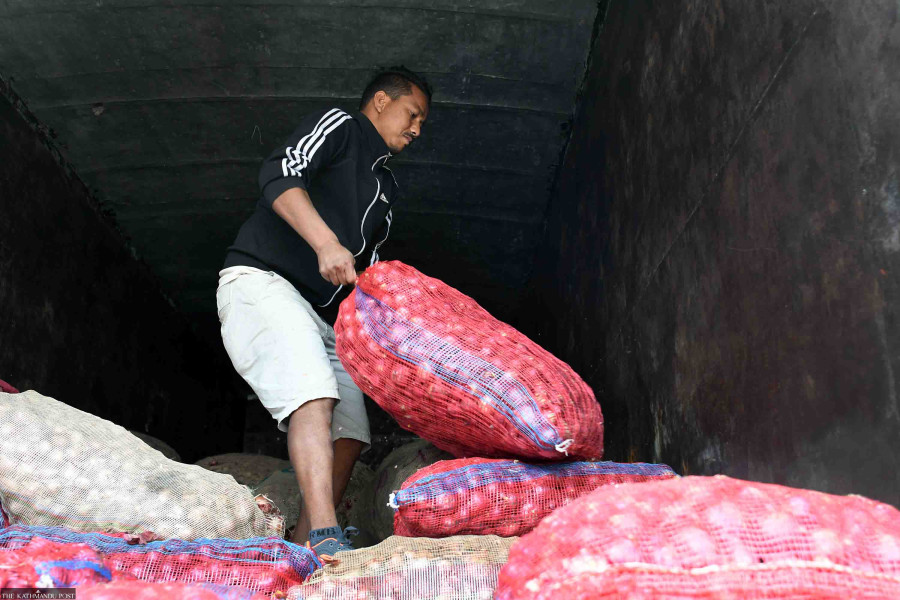Money
Onions likely to get costlier in Nepal after India imposes export duty
India imposes the export duty in an attempt to dampen domestic prices ahead of key state elections later this year.
Post Report
With India imposing a 40 percent export duty on onions with immediate effect to improve its domestic availability, onion prices in Nepal are expected to jump sharply, traders say.
They say that a massive price rise or even a shortage of kitchen essentials could dampen the mood of Nepal’s upcoming festival celebrations.
According to Reuters, India has imposed a 40 percent export duty on onions.
Reuters said that the duty imposed by the world’s biggest exporter of onions will help New Delhi dampen local prices ahead of key state elections later this year but will force Asian buyers to shell out more, as other regional exporters have limited supplies.
Average wholesale onion price in key markets of India has jumped nearly 20 percent from July to August, to $28.87 per 100 kg on concerns that erratic rainfall would lead to lower yields.
India is heading for its driest August in more than a century, with scant rainfall likely to persist across large areas, partly because of the El Niño weather pattern, reported the international media.
Onion prices doubled when Nepal imposed a 13 percent value-added tax (VAT) on it. The VAT was imposed on imported foods and vegetables for the first time as the tax-hungry government struggled to meet their annual revenue collection target.
Onions, which were trading at Rs16 per kg at the wholesale market before the budget announcement on May 29 doubled to Rs32 per kg after the budget.
On Sunday, the average wholesale price of onion was priced at Rs61 per kg in Kalimati Market, Nepal’s largest vegetables and fruits marketplace.
“Currently, we are importing onions from India at IRs20 per kg. With the export tax on onion by India, it may cost IRs25 per kg,” said Mohan Baniya, president of the Potato-Onion Import-Export and Wholesaler Association.
Baniya said that they were importing onion at IRs10 per kg before Nepal’s government imposed a 13 percent VAT on imported onions.
Nepal is almost totally dependent on imported onions from India as domestic production is negligible.
China is an alternative source for Nepal’s onion needs but Chinese onions are mostly used for salad purposes, mainly in hotels and restaurants.
Traders say that onion prices may jump sharply because there are chances of widespread shortages.
In November 2019, the price of onion hit a new high of Rs250 per kg in Kathmandu Valley after India slapped a ban on onion export in September of the same year to maintain domestic availability.
The ban caused severe shortages of onions all over Asia including Nepal. The ban was lifted in March 2020.
In September 2020, India again imposed a ban on onion export which was lifted in January 2021.
The Kalimati Fruits and Vegetable Market receives 84 tonnes of onion daily.
Potatoes, onions and other daily consumable farm products are supposed to be exempt from VAT under the Tax Act of 1996. But while preparing the new budget, the government amended the law through the Financial Bill 2023 and removed 170 goods from the tax-free list.
Taxes totalling 23.5 percent are charged on potatoes, onions and other vegetables, fruits and food items—9 percent agriculture service charge, 1.5 percent advance tax and 13 percent VAT.
Nepal imported 180,190 tonnes of onion for Rs6.75 billion in the last fiscal year 2022-23, according to the Department of Customs.




 9.7°C Kathmandu
9.7°C Kathmandu














